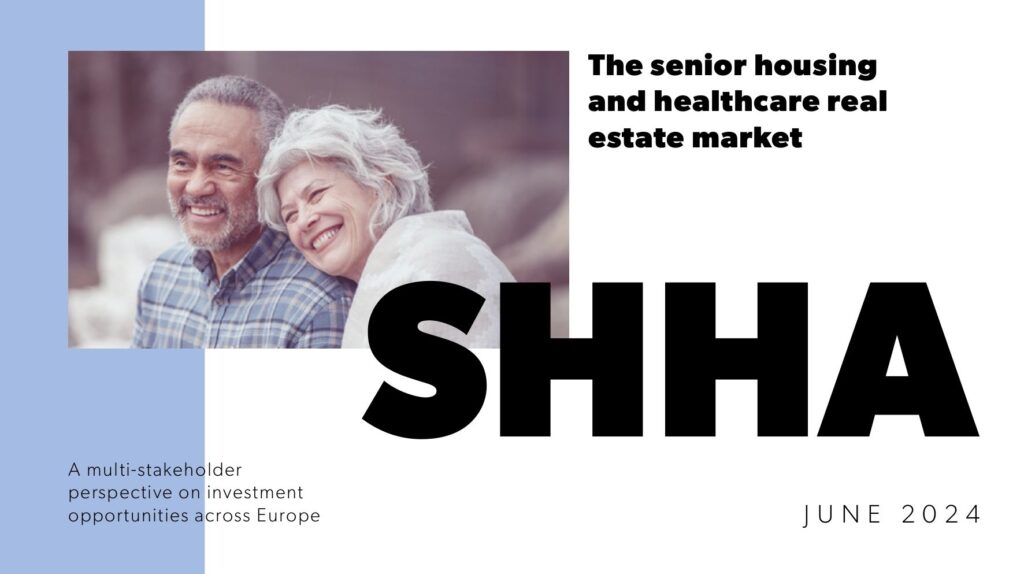Interview with Jussi Rouhento, Fund Manager, Managing Director in Finland, Northern Horizon.
What emerging trends do you see as having the greatest impact on the seniors housing and healthcare market, and how are you strategically positioning your investments to capitalise on these trends?
Over the recent years, we have seen a growing investor interest in responsible investing and creating long-term social value in the Nordics. We are very well positioned to create value for investors in this segment.
Northern Horizon was a true pioneer when we launched our first closed-end healthcare fund in 2007. In March this year, we successfully converted our third healthcare fund into an evergreen fund with the scope to invest not only in elderly care homes but also in other social infrastructure properties.
Social infrastructure is an essential part of the welfare systems in the Nordic countries, and the assets are used for the provision of a broad range of social services from daycare through education to senior housing and care services.
We see significant opportunities for investments because while private ownership of social infra real estate is still limited in the Nordics, we are seeing increased privatization.
One of our biggest competitive advantages is our highly specialized healthcare team with longstanding relationships with developers and investors to municipalities and care providers and their ability to source an attractive pipeline that fits our investment strategy.
How do you assess the long-term financial viability and growth potential of seniors housing and healthcare investments?
Our healthcare and social infrastructure investment products are based on the demographic trend of a rapidly ageing population in the Nordics. This has led to a structural shortage of care beds and long-term estimates predict a need for 75,000 net new beds in the Nordics by 2030.
Another trend is the increased budgetary pressure. Welfare spending in the Nordics is high because the population is becoming older and more costly, and many municipalities are struggling with limited resources to fill their increasing social responsibilities. As a result, they do not have the financial ability to build and maintain social infrastructure assets as they did before, so they are looking for other ways to provide the buildings.
At the same time, we are seeing much more interest in social assets from institutional investors and international investors. Primarily because the segment has proven to be quite resilient to economic instability and, also because investors are increasingly focused on the social and environmental impact of their investments. Investing in social infrastructure assets offers the prospect of a stable return and at the same time helps to solve a growing societal challenge in the Nordics.
What do you see as the key challenges facing the seniors housing and healthcare sector in the coming years?
A trend that may impact the senior housing and care home sector in the Nordic region is the shortage of healthcare professionals. Governments are increasingly responding to the challenges through redefining how and where patients receive care, to implementing smarter workflows and increasing digitalisation and the use of AI.
What are your development plans for the coming years?
The main focus for us right now is of course to expand the seed portfolio of the new, evergreen fund. The fund currently has 63 assets and we expect the portfolio to grow continuously in all the target countries with capital from existing and new investors.
It is key for us to provide modern, high-quality properties that meet the needs and expectations of the citizens and the municipalities, as well as our tenants who provide the care services. So we continue to monitor the shifts in demand for new senior housing concepts across the Nordic countries. We are seeing a growing interest among seniors in the 55-75 age group who would like to leave their own individual home earlier in life and move into senior housing, even hybrid concepts with some services included and clinics nearby.
How do you balance social impact considerations with financial valuation metrics in your investments, and how do these factors influence your decision-making process (e.g., capital flow discussions)?
The value proposition of our healthcare investment products is a potential for long-term capital growth and a commitment to help solve a societal challenge. As such, social impact is embedded in the funds’ objectives.
Both our healthcare funds are aligned with SFDR Article 8, and ambitious sustainability targets have been set for the properties such as net zero operational carbon by 2030.
As a result, environmental responsibility and ESG measures are a key part of the decision-making process concerning a specific investment opportunity.

Download the latest SHHA Report to read more Thought Leaders Interviews
